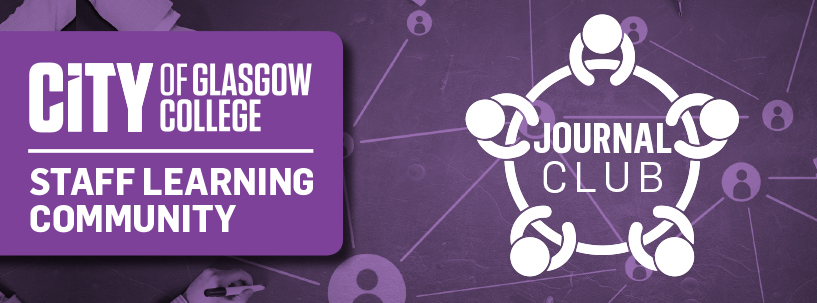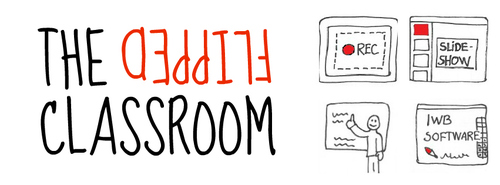Blog Authors: Tracey Howe, John McVeigh, Jan Robertson, Walter Patterson, Cathy Glover, Anna Close, Fiona Nixon
Image: DuEnLiJu / CC0Attribution
In the last few weeks, due to the coronavirus (COVID-19) pandemic, the world of education has had to react to a fundamental change due to closures of schools, colleges and universities on a world wide scale. Our College like many other institutions has had to shift from more traditional lecture-based approaches to teaching on-line.
This week we discussed this recent systematic review of flipped classroom empirical evidence from different fields addressing the gaps and future trends. Flipped classrooms are where students attempt to learn and comprehend the instructional contents before attending class through video-recorded lectures.
Here’s what they did
The authors searched electronic databases, namely ScienceDirect, EBSCOhost Web, Emerald Insight, Wiley Online Library and Springer Link for studies using keywords flipped classroom, flipped learning, flipping the class, inverted classroom and inverted learning in different fields and published in 2017 and 2018.
The authors reviewed and analysed 48 studies that met their criteria using content analysis. They explored positive impacts and challenges of implementing flipped classrooms.
Here’s what they found
Four major themes emerged;
- students’ academic achievement,
- learning motivation and/or engagement,
- self-directed learning skills
- social interaction.
The flipped classroom yielded positive impacts on students’ learning activities such as academic performance, learning motivation and/or engagement, social interaction and self-directed learning skills.
The most significant challenges encountered by the instructors is a lack of students’ motivation to watch the pre-recorded video lectures or to study the contents outside of the class time.
The author/s concluded
The findings suggest that the flipped classroom concept might be effective in pursuing the 21st century learning such as greater collaboration, more interaction, greater confidence in communicating ideas, and interestingly delivering a more democratic and equal learning space.
 Our Journal Club’s views
Our Journal Club’s views
Who are the authors of the paper and where do they work? The authors are affiliated to the Faculties of Education at the University of Hong Kong and the Ocean University of China.
What do we know about the journal? An international journal, On the Horizon, now in volume 28, explores the issues that are emerging as technology changes the nature of education and learning within and among institutions, other organizations, and across geo-political boundaries, as learning increasingly takes place outside of the traditional institutional environment.
What about the methodology used? This was stated to be a systematic review using content analysis (see here for a hands-on guide to content analysis). The authors would have benefited from using Preferred Reporting Items for Systematic Reviews and Meta-Analyses (PRISMA) an evidence-based minimum set of items for reporting in systematic reviews and meta-analyses. For more information see here.
The inclusion and exclusion criteria were not explicit, studies were only eligible if they were indexed by the the Social Sciences Citation Index (SSCI). The SSCI is a multidisciplinary index and indexes over 3,000 social sciences journals – 1988 to present. It would have been helpful to have a PRISMA flow diagram and tables of included and excluded studies.
It is not clear what language restrictions, if any, were applied and whether studies were independently reviewed by authors, what the level of agreement there was or how any disagreements were resolved.
The 5 summary tables of findings, 4 of positive impacts based on the four themes identified and one of challenges were helpful to the reader.
The final section on gamification did not appear to be based on the included studies and appeared more personal opinions of the authors and based on the work of ‘a professor’ at the same university of most of the authors which may have been one of the authors of this paper.
Our conclusions are – that this evidence has a high risk of bias.
 Implications for our practice
Implications for our practice
Covid-19 may become a catalyst for educational institutions worldwide to search for innovative solutions to the closure of campuses in a relatively short period of time.
It appears that those students who benefit from flipped classroom approaches are those with high self efficacy and motivation. Rather than offering a blanket change in practice could we do more to evaluate students self efficacy, motivation, learning styles, digital literacy and access to technology and connectivity. This would help targeting interventions to those who need support.
It is our anecdotal experience that gamification often appeals more to a younger cohort of students, this may be due to the format and content. Furthermore, cultural and language context should be taken into consideration.
It may be a cultural issue that many students are expecting to be talked at rather than taking responsibility for their own learning. This is reflected in evening class students who in general appear more motivated to undertake activity outside of the classroom.
There is a widespread assumption that all students are able to access and engage with online material. This is not the case. Many students do not have access to wifi, have poor broadband width and general connectivity issues, lack of suitable mobile technology, skills required to use them and some have language barriers.
 Next steps
Next steps
- Convene a virtual group, MS Teams, of staff who have experience or wish to gain experience of using flipped classrooms. This will allow us to pool expertise and resources. This will also identify any staff development needs and develop a strategy to fulfil any needs.
- Look at adding material as part of new staff integration process.
- Finding new ways to develop students’ self-efficacy and motivation
- Consider introducing a ‘learning log’ for all staff to capture innovative practice, challenges and issues during this period of College closure.
 View from
View from
 What do you think?
What do you think?
References
Liberati A, Altman DG, Tetzlaff J, Mulrow C, Gøtzsche PC, et al. (2009) The PRISMA Statement for Reporting Systematic Reviews and Meta-Analyses of Studies That Evaluate Health Care Interventions: Explanation and Elaboration.PLoS Medicine (OPEN ACCESS) PLoS Med 6(7): e1000100. doi:10.1371/journal.pmed.1000100
Zamzami Zainuddin, Hussein Haruna, Xiuhan Li, Yin Zhang, Samuel Kai Wah Chu, (2019) “A systematic review of flipped classroom empirical evidence from different fields: what are the gaps and future trends?“, On the Horizon , https://doi.org/10.1108/OTH-09-2018-0027
![]() Keywords:
Keywords:
Our Blog Posts are written by staff at City of Glasgow College to inform and inspire our practice. We meet together at the Journal Club to consider the latest evidence to provide insights on hot topics related to learning and teaching, quality assurance and subject needs. It forms part of our activity for General Teaching Council Scotland registration and Professional Standards for lecturers in Scotland’s Colleges demonstrating that we are a self-critical staff community.


